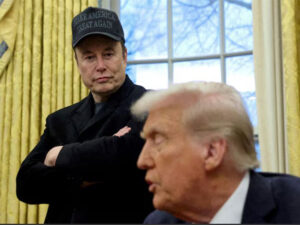Trump tariff declared unlawful; India must reassess US trade deal: GTRI
New Delhi [India], May 29 (ANI): After a federal court of the United States struck down a reciprocal tariff announced by US President Donald Trump, the Global Trade Research Initiative (GTRI) said that India should proceed cautiously in its ongoing Free Trade Agreement (FTA) negotiations with the US.
A Manhattan-based federal court on May 28 struck down Trump’s move to impose reciprocal tariffs on the trading partners of the US and ruled that he can’t use emergency power to impose tariffs on foreign countries; it has to come from Congress.
The order of the court determined that the tariffs, including those introduced under emergency economic powers, were unlawful.
Analysing the impact of the ruling on Trade negotiations, Ajay Srivastava, founder of GTRI, said that India should resist any agreement shaped by threats or based on unlawful measures.
Srivastava said that Trump-era tariffs violate World Trade Organisation (WTO) rules as well as the domestic laws of the US as confirmed by the federal court.
“With the Trump tariffs standing on shaky legal ground, India must pause and reassess its negotiation strategy before committing to an FTA that could disproportionately favour U.S. interests,” said Srivastava in a statement.
ANI on May 23 reported through government sources that India and the United States are poised to sign the first tranche of the much-anticipated Bilateral Trade Agreement (BTA) before July.
The India-US trade deal would mark a significant milestone in economic relations between the two big economies, potentially opening new avenues for bilateral commerce and investment.
In 2024-25, for the fourth consecutive year, the US was India’s largest trading partner, with bilateral trade valued at USD 131.84 billion. India had a trade surplus of USD 41.18 billion in goods with the US in 2024-25.
After the landmark ruling of the US federal court, the stock markets globally reacted positively, with excitement seen in major Asian markets of Japan and Korea. Japan’s Nikkei and Korea’s Kospi surged two per cent after the ruling.
In reaction, the Indian stock market benchmark Sensex at BSE also jumped over 500 points but lost steam soon.






